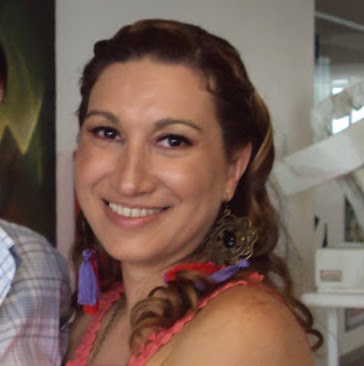Geraldine D Hamilton
age ~88
from Lemoyne, PA
- Also known as:
-
- Gerri D Hamilton
Geraldine Hamilton Phones & Addresses
- Lemoyne, PA
- 660 Boas St, Harrisburg, PA 17102 • 7172324055
- 660 Boas St APT 916, Harrisburg, PA 17102 • 7172324055
Work
-
Position:Retired
Education
-
Degree:High school graduate or higher
Medicine Doctors

Geraldine Eble Hamilton
view sourceSpecialties:
Radiology
Diagnostic Radiology
Diagnostic Radiology
Education:
Women`s Medical College of Kansas City (1967)
Resumes

Geraldine Hamilton
view source
Geraldine Hamilton
view source
Geraldine Hamilton
view source
Geraldine Hamilton
view source
Geraldine Hamilton
view source
Geraldine Hamilton
view sourceFlickr
Youtube
Classmates

Geraldine Hartnett (Hamil...
view sourceSchools:
Archbishop Prendergast High School Drexel Hill PA 1957-1961
Community:
Linda Tynan, Denise Murter, Tom Burke, Carol Bowers, Philip Gibson

Geraldine Hamilton
view sourceSchools:
West Junior High School Lansing MI 1953-1955
Community:
Sharon Fisher, Gordon Smith

Geraldine Hamilton (McDon...
view sourceSchools:
Shirley-Owens High School Quitman MS 1960-1964
Community:
Letha Barron, Tobey Bartee, Fred Thomas, Sadie Bowdry

Geraldine Hamilton
view sourceSchools:
W.W. Niles Middle School 118 Bronx NY 1995-1999
Community:
Millie Gonzalez, Margarete Levy, June Kufeld

Geraldine Davis (Hamilton)
view sourceSchools:
Lewes High School Lewes DE 1953-1957
Community:
Philip Carapezza, Tony Hall, Beebe Frazer, Peggy Polite

Geraldine Brinkman (Hamil...
view sourceSchools:
Mobile County High School Grand Bay AL 1953-1957
Community:
William Jerkins, Sarah Moore

Geraldine Guthrie (Hamilt...
view sourceSchools:
Hanceville High School Hanceville AL 1961-1965
Community:
Anthony Walker, Dorothea Davis, Gerald Sandlin, Rita Watson

Geraldine Hamilton
view sourceSchools:
Holy Innocents School Neptune NJ 1965-1971, St. Rose High School Belmar NJ 1972-1973
Community:
Lorraine Treiber

Geraldine Hamilton
view source
Geraldine Hamilton
view source
Geraldine Hamilton
view source
Geraldine Hamilton
view source
Geraldine Hamilton
view source
Geraldine Hamilton
view source
Geraldine Tracy Hamilton
view source
Geraldine Bays Hamilton
view sourceNews

Technology translation engine launches “organs-on-chips” company
view source- echnology Team, and a Wyss business development lead, working closely with Harvard OTD. The Organs-on-Chips project leaders included Don Ingber, Geraldine Hamilton, PhD, Lead Senior Scientist on the Wyss Institute Biomimetics Microsystems Platform, and James Coon, a Wyss Institute Entrepreneur-in-Residence.
- Date: Jul 28, 2014
- Category: Health
- Source: Google

Emulate Scores $12M to Shake Up Drug Testing With Organs on Chips
view source- Coon, a former AstraZeneca and GlaxoSmithKline employee and entrepreneur-in-residence at the Wyss Institute, and senior staff scientist Geraldine Hamilton (now president and chief scientific officer) are leading the company. Both Coon and Hamilton were executives of Research Triangle Park, NC-based
- Date: Jul 28, 2014
- Category: Health
- Source: Google

With billionaire's backing, Wyss spinout aims to retire animals in R&D
view source- The goal of the new company, says Coon, is to take a core group of people who built the technology--including Geraldine Hamilton as president and CSO--and then build a network of industry collaborators that already includes AstraZeneca and GlaxoSmithKline as it sells the tech to drug developers and
- Date: Jul 28, 2014
- Category: Health
- Source: Google

Wyss Institute Launches Organs-on-Chips-Focused Startup
view source- The project leaders behindOrgans-on-Chips include Don Ingber, Geraldine Hamilton, Ph.D., lead senior scientist on the Wyss Institute Biomimetics Microsystems Platform, and James Coon, a Wyss Institute entrepreneur-in-residence. Dr. Hamilton and Coon will be taking senior leadership positions at Emu
- Date: Jul 28, 2014
- Category: Health
- Source: Google

Technology translation engine launches 'Organs-on-Chips' company
view source- are led by teams that include the lead faculty member, a technical champion with industrial experience on the Institute's Advanced Technology Team, and a Wyss business development lead, working closely with Harvard OTD. The Organs-on-Chips project leaders included Don Ingber, Geraldine Hamilton, Ph.
- Date: Jul 28, 2014
- Category: Health
- Source: Google

Organ on a chip?
view source- Dr. Geraldine Hamilton, co-author on the paper and the senior lead for the organs on chips program at Wyss, said the study is providing us with a very exciting proof of concept for our ability to use organs on chips to create human disease models.
- Date: Nov 08, 2012
- Category: Health
- Source: Google

Organ-on-a-Chip Mimics Deadly Lung Condition Susan Young
view source- This led to two surprising discoveries, says study coauthor and Wyss lead staff scientist Geraldine Hamilton. One was that the immune system, which was not represented in the chip, was not required to cause the leakage side effect as had been previously thought. Second, the team found that when they
- Date: Nov 07, 2012
- Category: Health
- Source: Google

Microchip Lung Catches Fatal Disease
view source- "There's a huge need to find more predictive alternatives" to the lab mice that pharmaceutical companies rely on now, said Geraldine Hamilton, who worked on the diseased lung-on-a-chip. Hamilton manages the organs-on-a-chip research program at Harvard University's Wyss Institute. "We think th
- Date: Nov 07, 2012
- Category: Health
- Source: Google
Googleplus

Geraldine Hamilton

Geraldine Hamilton

Geraldine Hamilton

Geraldine Hamilton

Geraldine Hamilton
Myspace
Get Report for Geraldine D Hamilton from Lemoyne, PA, age ~88
















